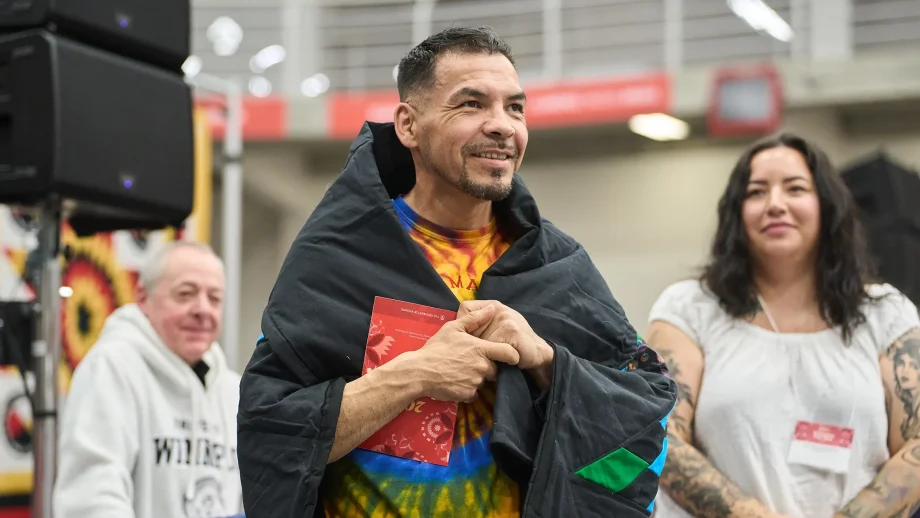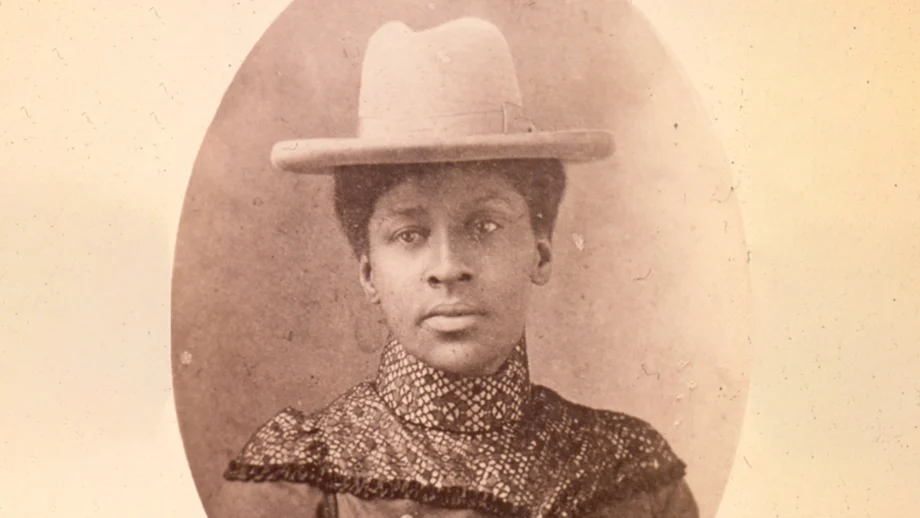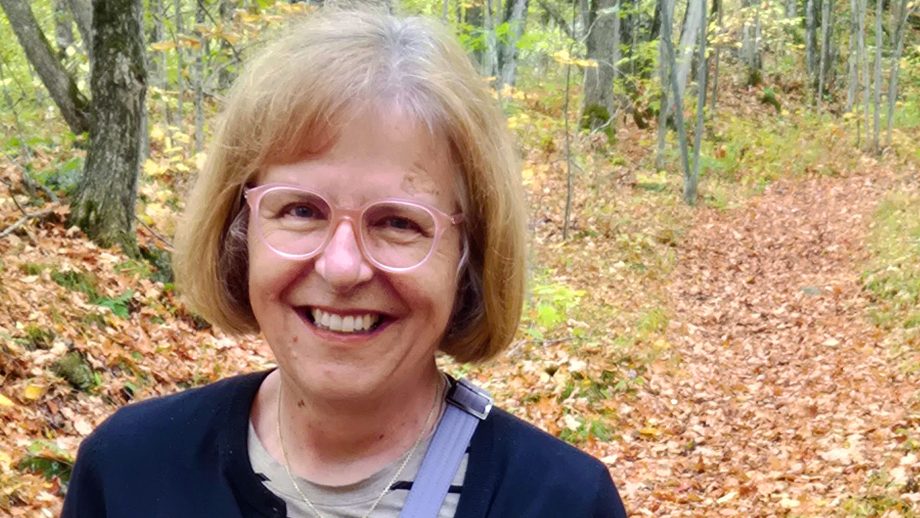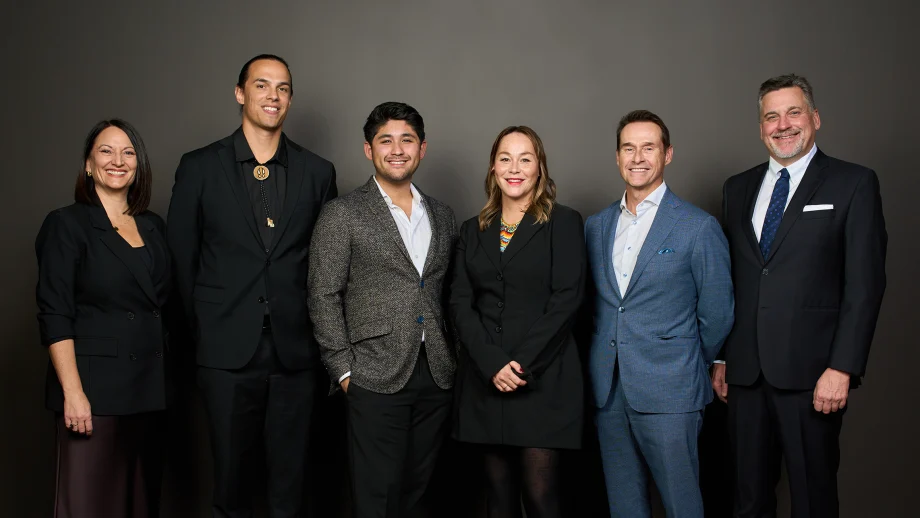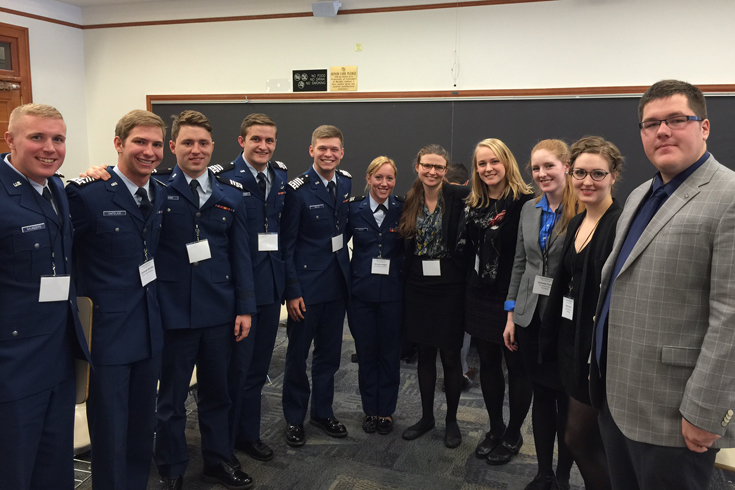
Members of The University of Winnipeg Ethics Bowl team, right to left, Tyler Ruiter, Anna Currie, Stefanie Payne, Emily Rempel and Signe Penner-Goeke (missing, Ellie Einarson) immediately following their debate with members of the United States Air Force Academy (pictured at left).
A UWinnipeg interdisciplinary team of six students, Anna Currie and Ellie Einarson (Philosophy), Emily Rempel (Global Studies), Signe Penner-Goeke (Biology), Stefanie Payne (French Studies) and Tyler Ruiter (Business) represented The University of Winnipeg with distinction in the Rocky Mountain Regional Ethics Bowl which took place November 15, 2014 in Boulder, Colorado. The team finished with a two and two record in their four debates, narrowly missing advancing to the final round.
One of its wins by the narrowest of margins was a keenly contested debate with a team from the United States Air Force Academy based in Colorado Springs. The other was over Colorado State University.
The team was coached by John Melnyk, Business and Administration and Dr. Adam Scarfe of the Philosophy department, with the support of more than 20 experts in various fields from within and beyond the university community who contributed time and expertise to the team’s preparation by “mentoring” them on specific issues.
“Competing in an Ethics Bowl is an immensely challenging intellectual exercise,” expressed Melnyk. “Students must prepare to debate 15 issues ranging from the ethics of allowing euthanasia for terminally ill children to the social implications of “sexbots” – robotic technology applied to create inanimate sexual “partners” in human form! Dr. Scarfe and I are tremendously proud of them and how well they represented the university in this high-level competition.”
The Ethics Bowl is an American competition, put on by the Association for Practical and Professional Ethics (APPE). The Rocky Mountain Regional Ethics Bowl is one of several regional competitions held at various locations throughout the United States in fall, culminating in a national competition for the regional winners in early spring.
An Ethics Bowl is essentially a debating competition. Teams of students prepare to debate fifteen issues which are made available in September. However, neither the specific proposition for debate nor which side of that proposition a team will advocate are identified in advance, so students must develop a broad-based understanding of the issues from a variety of perspectives.

